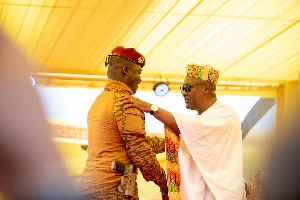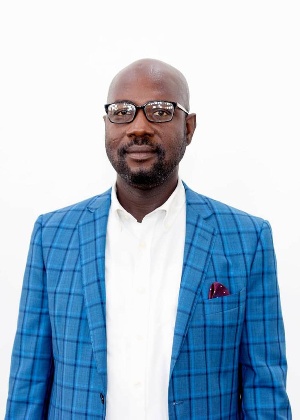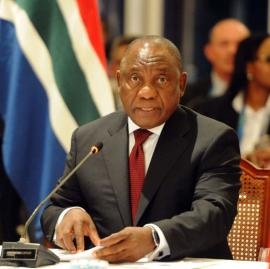- Home - News
- Elections 2024
- News Archive
- Crime & Punishment
- Politics
- Regional
- Editorial
- Health
- Ghanaians Abroad
- Tabloid
- Africa
- Religion
- Photo Archives
- Press Release
General News of Tuesday, 1 April 2025
Source: www.ghanawebbers.com
Reimagining Regional Peace and Security: President Mahama's Strategic Engagement in the Sahel
**The Coups and Regime Changes**
In recent years, the Sahel region has experienced multiple coups. These changes have disrupted regional stability significantly. They have sparked global debates on international affairs. Key themes include geopolitical strategy, foreign investment, and humanitarian crises.
The overthrow of governments in Mali, Burkina Faso, and Niger raises concerns. There is a growing fear of extremist groups gaining power. Additionally, Western influence, particularly from France, is diminishing.
These developments create socio-political and economic challenges for affected nations. Neighbors like Ghana are also impacted as they promote democratic governance. It is essential to reflect deeply on these issues.
**Ghana’s New Approach under President Mahama**
Amid these challenges, President John Mahama has taken action. He is committed to addressing the complex issues in the Sahel region. His appointment of a special envoy shows Ghana's strong stance on these matters.
This move highlights the Sahel's importance in the fight for freedom and security across Africa. Historically, the Sahel has been central to liberation movements that support Pan-African ideals.
Claims that President Mahama's approach departs from Ghana's non-alignment are inaccurate. Our foreign policy remains rooted in Pan-Africanism, as emphasized by Nkrumah’s vision of independence from East or West influences.
**ECOWAS Approach and Response**
The Economic Community of West African States (ECOWAS) plays a crucial role in addressing coups. It has a history of intervening to maintain constitutional order among member states.
However, the unique challenges in the Sahel require tailored strategies rather than standard solutions. President Mahama’s leadership signals Ghana’s commitment to redefining ECOWAS's role in this context.
Ghana actively participates in ECOWAS discussions to restore democracy through regional consensus. This situation raises questions about rebuilding trust among member states while respecting citizens' voices across Africa.
Understanding citizens' aspirations versus specific factions’ interests is vital for effective governance. Regional leaders must empower citizen voices for true freedom.
**The Sanctions**
In response to the coups, ECOWAS imposed targeted sanctions aimed at restoring civilian governance. Ghana supports these sanctions as part of a broader call for democracy and stability in West Africa.
However, isolating countries may not be beneficial if citizens share values with their leaders. A wise approach involves addressing core issues causing instability without using force.
President Mahama advocates for dialogue and understanding to tackle extremism and regional complexities effectively.
**Formation of the Sahel Alliance**
The formation of the Sahel Alliance marks an important development internationally. This coalition aims to address security, development, and climate challenges facing the region.
Ghana’s involvement shows its commitment to collective efforts through diplomatic channels encouraged by President Mahama.
**Regional and Geopolitical Shift**
The changing security landscape requires re-evaluating traditional alliances and partnerships in the Sahel region. Increased U.S. and European involvement against terrorism reflects shifting dynamics that Ghana must navigate carefully.
President Mahama's proactive stance positions Ghana well amid these changes while balancing national interests against external influences.
**Exit from ECOWAS**
Despite its commitment to ECOWAS, some within Ghana question its effectiveness amid evolving security challenges. Discussions about necessary reforms or alternative frameworks are emerging within this context.
Navigating these debates will be crucial for Ghana as it maintains regional cooperation under President Mahama’s leadership while affirming its strong foreign policy stance.
**Perspectives from the International Community**
The international community views Ghana as a stable beacon within ECOWAS. Observers recognize its essential role in advocating for democracy and regional security amidst ongoing challenges in the Sahel region.
Global partners expect Ghana under President Mahama’s leadership to foster cooperation among nations while promoting peace initiatives against terrorism.
In conclusion, Ghana's foreign policy regarding the Sahel underscores its dedication to democratic values and collaboration efforts under President Mahama’s leadership.
His strategic decision to appoint a special envoy reinforces this commitment while affirming our historical role toward regional stability and freedom.











